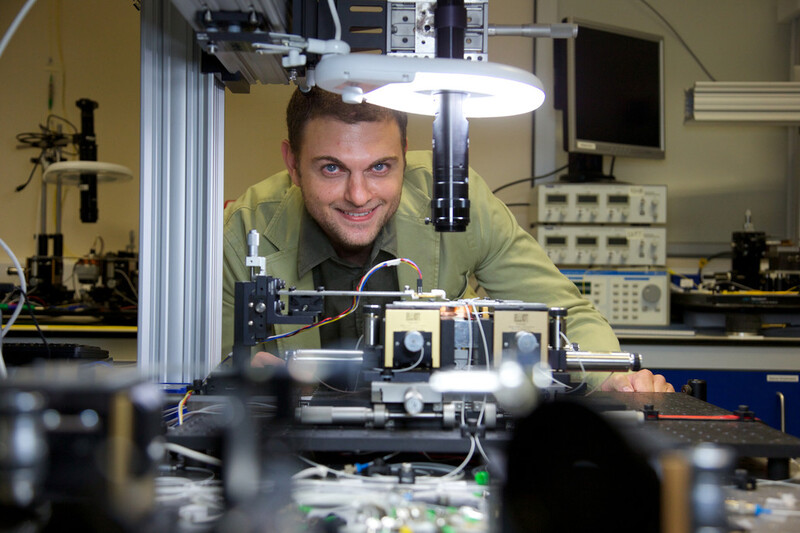About the faculty
Our ethos is shaped by our ambition for academic activity.
Our scientists tackle the most pressing challenges of our time, including climate change and its consequences, synthetic design of molecules and cells to combat life-threatening diseases, digital innovation through AI and machine learning, as well as pioneering computation. Whether you are a prospective student, interested in joining one of our research teams, or would like to explore a collaboration with our top scientists, I hope these pages will provide you with the information you need to get involved. If you have questions or queries do get in touch.
Welcome to the Faculty of Science
The Faculty of Science consists of five schools whose teaching and research span the mathematical, physical, and environmental sciences. Our interdisciplinary community includes almost 700 teaching and research staff, more than 200 support staff, and over 3,000 students across all levels of study. We welcome collaborations with industrial partners and engage with a global community of local, national and international organisations as we work to explore fundamentally vital questions of scientific understanding.
We are a global leader for research and provide expertise to guide policy, contribute to our community, and nurture the next generation of innovative and creative scholars. Our students learn with experts at the forefront of their disciplines and are supported to fulfil their personal and academic potential thrughout their experience at Bristol.
Our diverse research interests span the past, present and future from the nanoscale to the global scale. We are building on our strong tradition of excellence to continue pushing scientific frontiers and address questions of critical importance.
Our research
The Faculty is a world-leading centre for fundamental science research and its applications. Analysis of the 2021 Research Excellence Framework (REF) by Times Higher Education ranked all five schools in our Faculty among the top five nationally for research, with Chemistry and Geography and environmental studies research both 1st in the UK, Earth systems and environmental sciences 2nd in the UK, Mathematical sciences 4th in the UK, and Physics 5th in the UK. The University of Bristol is the only institution to have all of these subjects ranked in the top 5 and is ranked fifth overall for research in the UK, with a remarkable 94% of its research assessed as world-leading or internationally excellent. We promote a culture and support an environment that enables science of the highest academic quality, and which maximises the impact of our research in both an academic as well as broader societal context.
We have strong and successful collaborative research interactions with colleagues from a wide variety of disciplines from social sciences to medicine; our faculty staff also collaborate with leading UK research institutes; regional partners, such as Wessex Water; and partners in industry, such as the Met Office, EDF Energy, AWE, Cisco, Google, Toshiba, Hewlett-Packard, QinetiQ, Unilever, Barclays Bank, LV= and National Air Traffic Services. Basic research on glucose-binding molecules in the School of Chemistry led to spin-out Ziylo, which in 2018 was bought by Novo Nordisk in a deal worth ~$800 million. A particularly valuable partnership of key strategic importance exists between the School of Mathematics and GCHQ, who work together within the Heilbronn Institute for Mathematical Research funding over 30 full-time research staff in the School of Mathematics, in addition to workshops, conferences and PhD studentships. Staff across the Faculty also work closely with the University Research Institutes which help to develop world-leading, multi-disciplinary research and enable us to focus on major strategic funding calls such as the Global Challenges Research Fund.
The Faculty has led a number of initiatives in response to the Covid-19 pandemic, including the high-profile work by the Aerosols Group (airborne transmission); BrisSynBio and Max-Planck Centre (vaccine production and treatment); the Computational Chemistry Group (molecular modelling and VR); the Atmospheric Chemistry Group (virus transmission through airflow); and the Heilbronn Institute for Mathematical Research (several major, high-level modelling projects associated with the response to the Covid-19 epidemic that fed directly into Cabinet Office planning).
The Faculty is underpinned by a wide range of state-of-the-art research facilities. These include our Earth Sciences Collection (with over 100,000 palaeontological, petrological and mineralogical samples of scientific and historical importance); Geographical Science’s unique national research facility with state-of-the-art instrumentation focused on biogeochemical processes in aquatic and terrestrial systems, including low temperature environments; Chemistry and Physics’ NanoESCA Facility for ultra high-resolution surface analysis; Chemistry’s world-unique 13C/19F/15N/1H cryo-NMR system for studying molecular and biomolecular systems; Physics’ Metal Organic Chemical Vapour Phase Deposition (MOCVD) reactor, the only one of its kind in Europe; and our Centre for Nanoscience and Quantum Information, home to some of the quietest labs in the world. Our digital and data research priorities also benefit from direct free-at-point-of-use access to the University of Bristol High Performance Computing systems, with many tens of thousands of CPU cores, substantial GPU resource and petabytes of research data storage facilities.
We seek to attract, develop, and retain individuals from the widest possible talent pool and the broadest possible range of backgrounds. We are committed to building an inclusive working environment where all colleagues can thrive and reach their full potential. As such we particularly welcome applications from women and from ethnic minority groups, as they are under-represented in our faculty.
Our teaching
Our Faculty is home to state-of-the-art facilities and dedicated academic staff whose interdisciplinary expertise creates an inspirational learning environment with a wealth of opportunities for our students.
Innovation and creativity lie at the core of science, and we encourage our students to appreciate the integrated nature of their disciplines and how we as scientists can and must contribute to society. We ensure our students are supported to enter the workplace equipped with the skills they need to succeed in a rapidly changing world.
Our community
Applying the breadth of our expertise to tackle the challenges of the modern world and further our scientific understanding requires open engagement with a truly global community.
We collaborate on local, national and global scales to build community ties, work with industry and co-create knowledge. We work in an international context, both with regards to the research students and scholars we attract and the partnerships we support.
Many of our courses are run in association with industrial partners, whose workforces benefit from Bristol’s exceptional research and training opportunities. Members of our faculty collaborate on research projects or provide expert advice to leading UK research institutes, government agencies and regional and international partners, such as The Met Office, Cisco, GCHQ, Google, Toshiba, Hewlett-Packard, QinetiQ, Unilever, Barclays Bank and National Air Traffic Services.
In all of this, across our research and teaching activity, we strive to cultivate an open, interactive and friendly working environment. Our Schools have been recognised with Athena SWAN awards for their commitment to proactive gender-neutral employment practice, and we ensure we have strong support for those with disabilities and flexible working arrangements throughout the Faculty.
REF 2021 results
Within the faculty, the strength of individual schools is reflected by outstanding REF 2021 Research Excellence Framework results.
 Courses and programmes
Courses and programmes
In 2022 the faculty had approximately 3,180 students studying a broad range of undergraduate courses. There were 200 taught masters students and 500 postgraduate students studying our postgraduate programmes.
 Why choose Bristol
Why choose Bristol
87% of students in employment or further study within six months of leaving

